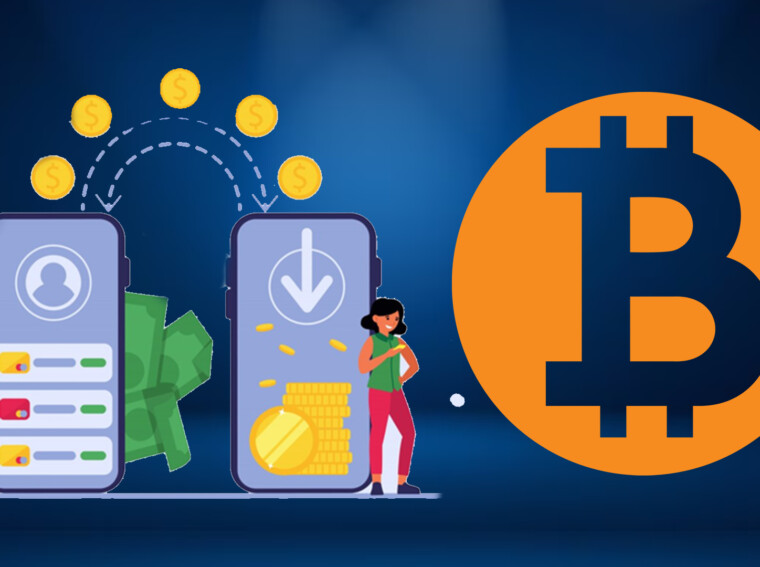Bitcoin, a decentralized cryptocurrency, has captivated the globe with its disruptive potential. Every Bitcoin transaction requires transaction fees to run well. This post will explain Bitcoin transaction fees and their computation. These fees validate transactions on the blockchain by connecting consumers and miners. This essay gives readers a deep grasp of Bitcoin transaction fees to confidently navigate the cryptocurrency ecosystem.
The Significance of Bitcoin Transaction Fees

Bitcoin transaction fees power the Bitcoin ecosystem and ensure its efficiency and security. Miners verify blockchain transactions. Transaction fees encourage miners to add certain transactions to the blockchain quickly. These fees provide network security and transaction processing speed, preventing delays, inefficiencies, and vulnerabilities. Transaction fees help Bitcoin remain decentralized by compensating miners, preserving the blockchain, and assuring a reliable peer-to-peer payment system.
Calculation of Bitcoin Transaction Fees
Transaction size and network congestion determine Bitcoin transaction costs. More significant transactions require more data processing. Miners’ computational work increases fees. Network congestion from high transaction volumes or technological improvements also affects prices. Users must pay more to get miner attention during crowded periods, speeding up transactions.
Bitcoin wallets usually calculate fees in two ways. Predetermined wallet fees may not match real-time network circumstances. Dynamic rates react to current congestion levels, delivering appropriate fee suggestions. Users must consider transaction urgency, size, and network circumstances to compute reasonable fees for efficient Bitcoin transaction processing.
Fee Calculation Methods
Static and dynamic Bitcoin transaction fees are computed. Wallet providers establish dormant fees, which are simple but might cause delays or overpayments in unstable networks. Active costs respond to real-time network congestion, making them more responsive.
Dynamic fee calculation algorithms analyze transaction volume and block space availability. This research suggests fees based on user confirmation time and network urgency. These dynamic variables allow consumers to conduct transactions quickly without overpaying during low network activity. This adjustable fee calculation lets customers optimize transaction costs while retaining dependability and speed in the ever-changing Bitcoin ecosystem.
Factors Influencing Transaction Fees
Bitcoin transaction costs depend on several factors. Congestion caused by large transaction volumes or improvements might raise prices as users fight for block space. Faster confirmation times require higher fees to incentivize miners.
More significant transactions need more block space, increasing costs. Some wallets let users manually adjust fees, offering flexibility but requiring network understanding. By combining transactions and transacting off-peak, consumers can reduce costs. Users can balance expenses and transaction speed on the Bitcoin network by recognizing and accounting for these aspects.
Minimizing Transaction Fees
Minimising Bitcoin transaction fees requires deliberate choices to maximize cost-efficiency and transaction speed. Several methods can do this. First, wallets with dynamic expense estimating algorithms allow real-time network monitoring and cost selection based on congestion levels. Since network demand is lower off-peak, transactions can be cheaper.
Users can also combine many transactions into one batch transaction. Optimizing block space use reduces prices. Users can manually set fees by monitoring wallet features that allow fee tweaking. These solutions let consumers navigate the Bitcoin ecosystem with low costs, high security, and speed.
Conclusion
Finally, everyone interested in cryptocurrencies must understand Bitcoin transaction costs. These fees encourage miners to confirm transactions quickly and secure the blockchain. Users may ensure effective transaction processing by knowing how transaction size and network congestion affect costs.
Dynamic charge computation approaches reflect real-time network circumstances, whereas off-peak hours and batching transactions can reduce costs. Optimize your Bitcoin experience by balancing fees and transaction speed.
Educating about transaction fees helps consumers utilize Bitcoin strategically and cost-effectively as blockchain technology evolves. Every Bitcoin player must understand transaction costs as the industry grows.

